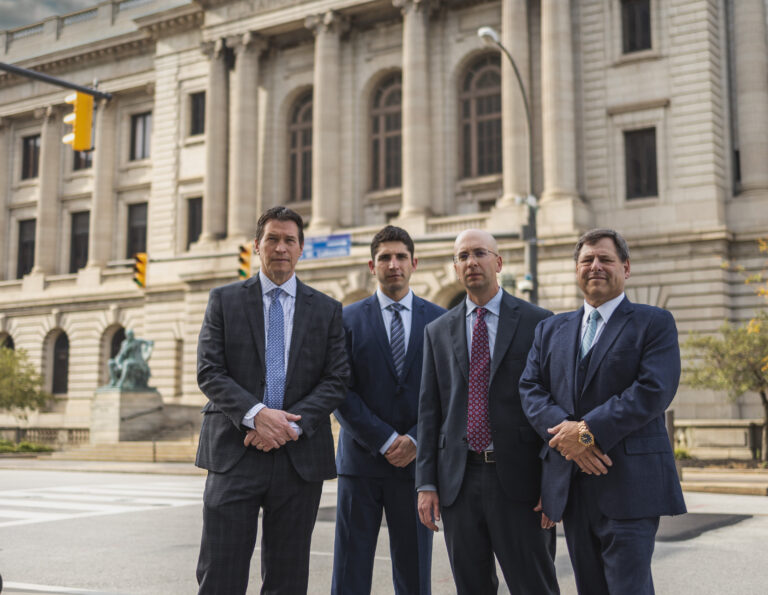By Larry W. Zukerman, Esq. and Adam M. Brown, Esq.
This past week, federal authorities shocked the country when the FBI executed a search warrant at former President Trump’s Florida residence, Mar-a-Lago in Palm Beach, Florida. In response, Republicans nationwide cried foul and political persecution while Democrats seemed to celebrate. The Department of Justice has been quiet about the matter; some reports indicate that the search was related to possibly classified records that former President Trump allegedly took with him when he left office in January 2021. In short, the taking of classified records could violate federal law, specifically, the Presidential Records Act of 1978.
Whether he did or did not, media outlets reporting on the matter, both conservative and liberal, jumped at the opportunity to throw around the terms “search warrant” and “raid” on Mar-a-Lago, in sensational fashion. Without knowing any better, one might conclude that just because a search warrant was executed on his residence, then he must have done something illegal, committed a crime. That, however, is simply untrue.
Taking a step back, and without jumping to any conclusions, it is important to understand the basics of what is being discussed and reported. That is, what exactly is a search warrant? What does it mean? How was it issued, who issued it and why was it issued?
A search warrant is tied to the Fourth Amendment which prohibits warrantless, unreasonable searches and seizures by the government. The key terms here being “warrantless” and “unreasonable”, and a valid search warrant transforms an unreasonable search into a reasonable one.
To obtain a search warrant, a law enforcement officer must present an application for the warrant in the form of a sworn affidavit to a “neutral and detached” (unbiased) judge. The affidavit must specifically articulate the reasons that the officer believes that specific evidence of crime will be found in the particular place he or she wants to search (here, that being Mar-a-Lago). The judge must then determine if the officer’s affidavit establishes probable cause to support the breach of privacy through the issuance of the search warrant. In fact, the Fourth Amendment provides that “no Warrants shall issue, but upon probable cause, supported by Oath of affirmation.” But what is probable cause? The U.S. Supreme Court has held that probable cause exists when, “given all the circumstances set forth in the affidavit…that “there is a fair probability that contraband or evidence of a crime will be found in a particular place.” See Illinois v. Gates. The word “particular” is important in this context as the Fourth Amendment requires the affidavit to describe, with particularity, what evidence is being sought (such as documents) and where specifically it is being sought (such as a specific residence). Frankly, from an evidentiary point of view, probable cause is a low legal standard⎯ a much lower standard than the familiar “beyond a reasonable doubt” which is required to actually find someone guilty of a crime.
If the judge finds that the affidavit contains facts which establish probable cause, they sign the warrant, which sets forth what the officers may search for, where they may search, when the search must commence, and instructs the officers to seize any of the items listed in the warrant.
Do search warrants lead to criminal prosecutions? Possibly, but not all the time. Sometimes where there might be smoke, there is not necessarily fire and many search warrants reveal no evidence of crime at all. Remember, “probable cause” does not mean absolute certainty that there is evidence of crime, only a “fair probability” which can have all types of interpretations.
Whether the search of Mar-a-Lago is politically motivated is another issue entirely though evidence of this many call into question the validity of the search warrant itself down the road (especially if any false or misleading statements were included in the officer’s affidavit who applied for the search warrant).
Ultimately, while many, especially those in the media, seem quick to convict someone who’s property is the subject of a search warrant, regardless of who it is, we must resist that urge and let the justice system run its appropriate course. Like it or not, we are a nation of laws and that is what Constitutional due process requires.
Larry W. Zukerman is the managing partner of Zukerman, Lear & Murray, Co., LPA located in Cleveland, Ohio. For more information about Mr. Zukerman and Attorney Adam M. Brown, visit the law firm’s website at www.zukerman-law.com.








